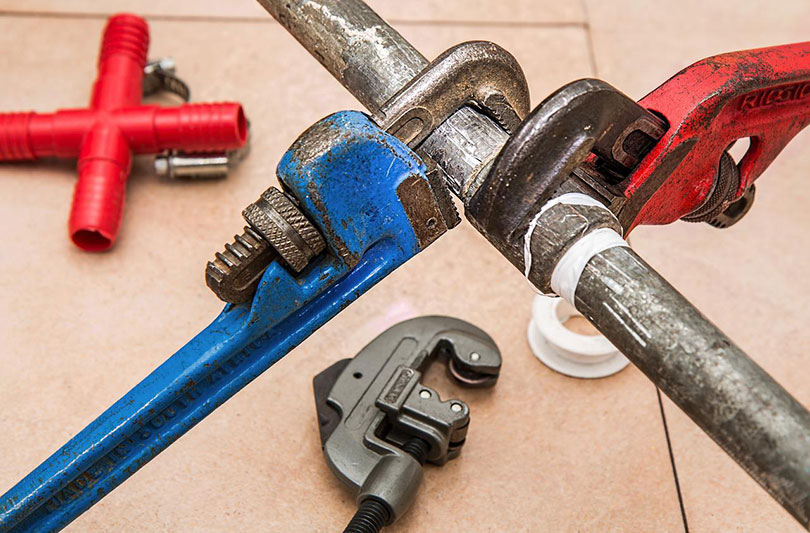A water leak doesn’t just cause damage to your home and cost you money in repairs and water bills. All that wasted water is bad for the environment too because of the energy required to replace it.
Whilst you can’t always prevent a burst pipe, water leaks are less likely to occur if you maintain your pipes and water systems, and get them checked out as soon as you suspect a leak. We take a look at different ways water leaking can occur, how to stop a water leak and how to prevent leaks in the future.
Types of water leaks to watch out for
There are two main types of water leak, both of which have the potential to cause considerable damage to your home as well as costing you money you could be spending elsewhere.
Catastrophic leaks
Catastrophic water leaks are the big ones you really aren’t expecting. They occur suddenly and can involve a large amount of water and damage, especially if you’re not at home when the leak occurs. Even before repairs, it can take a long time to dry out a home following a catastrophic leak, so it’s definitely worth doing your best to avoid one.
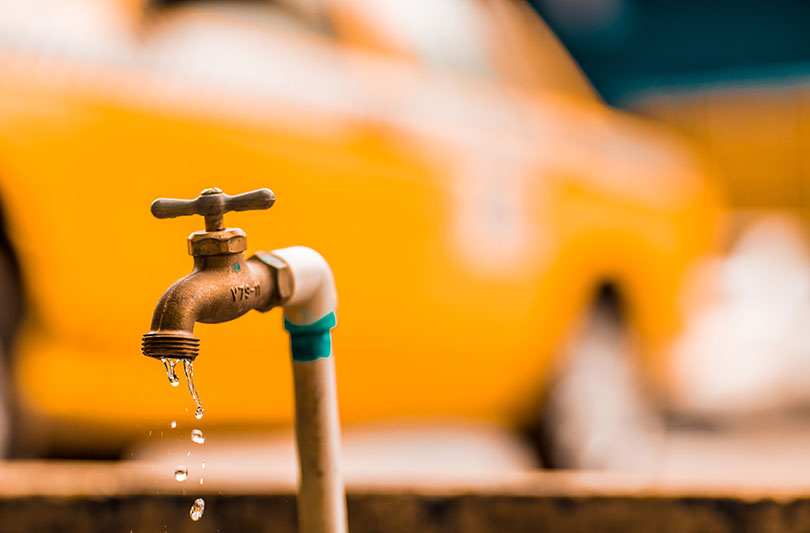
Slow leaks
If you notice a slow water leak in good time, you can do something about it before too much damage occurs. It’s important to act quickly though, slow leaks can often become bigger ones so if you spot one, get in touch with a specialist as soon as possible. One way you can spot a slow leak is to keep an eye on your water bill for any unexplained increases in usage.
Common causes of leaking household water
Water leaks can occur anywhere in your water system. This includes supply pipes buried underground as well as in appliances like plumbed fridges. Understanding your water system can help you work out where the problem is should you notice water dripping, or even flooding into your home. We’ve given some of the most common water leak causes below.
- Tap leaks including Quooker Taps
- shower leaks
- Leaking toilet cisterns
- Damaged appliance seals
- Faulty water connections
- Erosion in your plumbing system
- Sudden changes in temperature
- Tree root damage
- Leaking stop taps
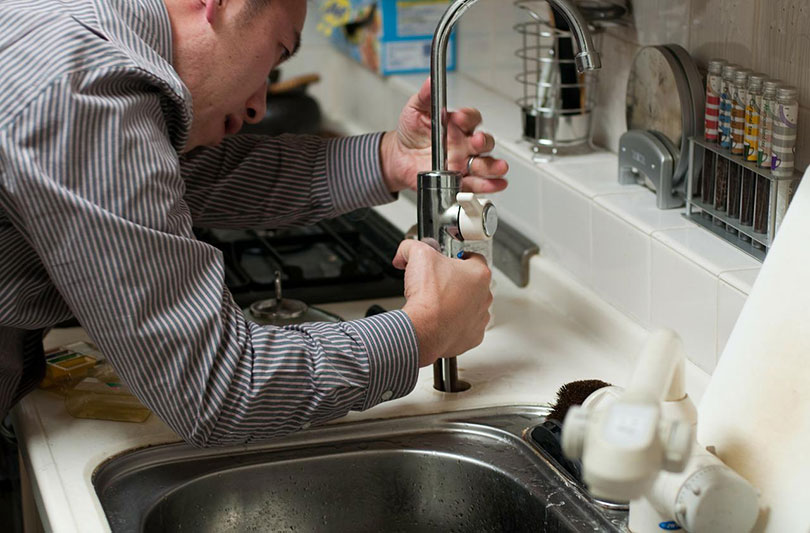
How to fix leaking pipes
If you’ve discovered a leak in your domestic water supply, the good news is you’ll be able to make some repairs yourself. For some leaks however you’ll need to call in a specialist, even if you do make a temporary repair. One of our top tips would be to build up good relations with a trusted local plumber before a problem occurs. We have ten top tips on water-leaking repairs below.
- Make sure you know how to turn off your water supply
- Locate the leak as precisely as you can
- Call a plumber if you don’t feel qualified to do the job
- Stop a tap dripping by changing the washer
- Apply plumber’s tape for a temporary seal to a leaking pipe
- Watch out for unexplained rising water (call a plumber if it looks suspicious)
- If your bath or shower is leaking, check your plughole and overflow seals
- If water is leaking from your toilet cistern you may need a new flush system
- Tighten up or replace dripping sink traps (under the sink)
- Reduce water pressure in your boiler by bleeding your radiators (with the filling tap closed)
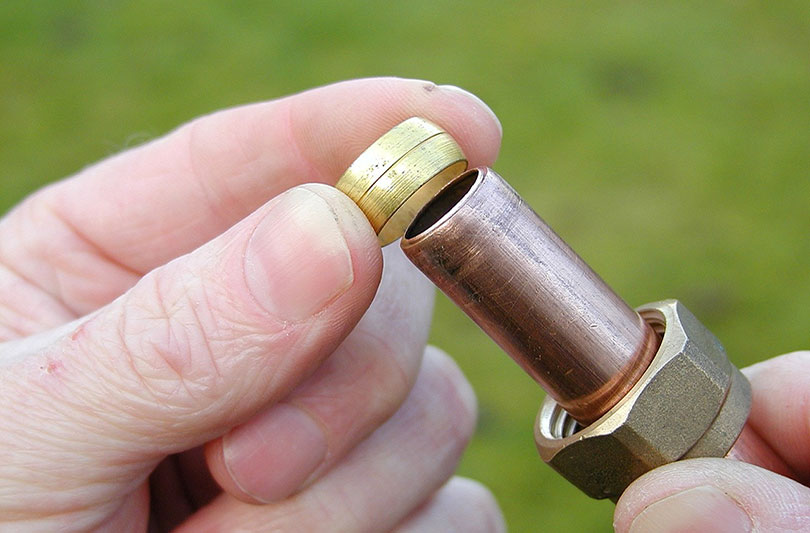
How to prevent leaks in the future
With the damage and annoyance that water leaks can cause it makes sense to prevent them happening if you can. Taking a few small steps to prevent water leaks around your home can make all the difference at the same time as saving you from stress and expense.
- If you live in a hard water area, protect your water pipes from damage by installing a water softener to prevent the build-up of harmful limescale
- Make sure everybody in your household knows how to turn your water off at the stop cock
- Get to know your water system – this includes appliances as well as pipes
- Make a point of regularly checking for water leaks around appliances and underneath sinks, toilets, showers and baths
- Keep your drainage running free – clear your gutters and downpipes and check waste pipes from appliances such as washing machines and dishwashers
- Avoid frozen pipes – make sure you maintain the temperature in your home and insulate any unprotected pipes with foam tubes
- Check your roof from the inside and the outside – take action as soon as possible if you spot any vulnerable areas or signs of leakage
- Watch out for signs of damp such as mould or flaky paint – these might be caused by slow water leaks
- Have your boiler regularly checked and serviced
- Keep the contact details of your plumber in an obvious known place
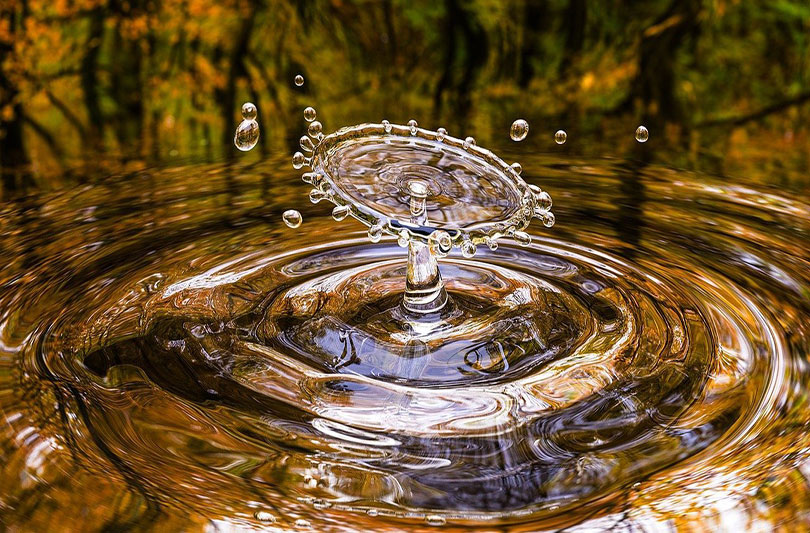
Prevent leaking water before it becomes a problem
Water softeners are extremely effective in preventing the build-up of limescale that can, over time, damage your pipes and appliances. At Hart Water we offer competitive pricing on a range of filters, taps and water softeners including installation, service and repair. To find out more about how we can help you protect your home, get in touch today to talk to our expert team.
- Water Softener Size Guide: How to Select the Perfect Fit for Your Home or Business - February 25, 2025
- Under Sink vs Whole House Water Filters: The Complete Homeowner’s Guide - November 27, 2024
- 7 Surprising Ways Water Softeners Transform Your Skin: Unveiling the Secret to Radiant Complexion - July 17, 2024

